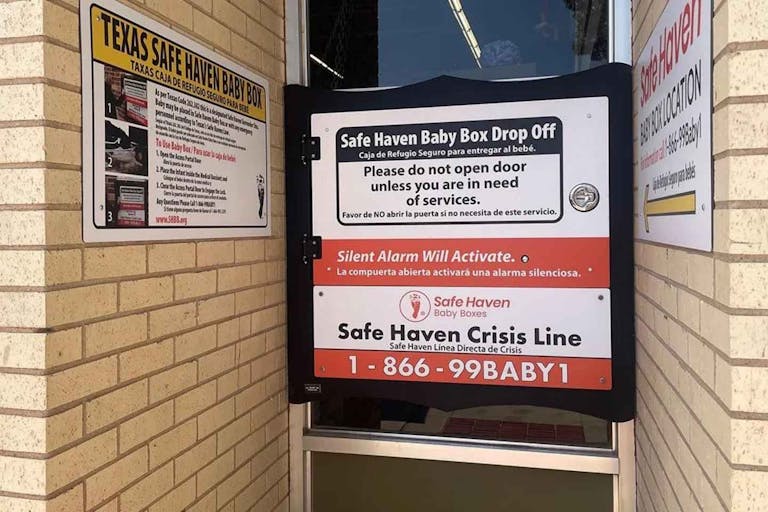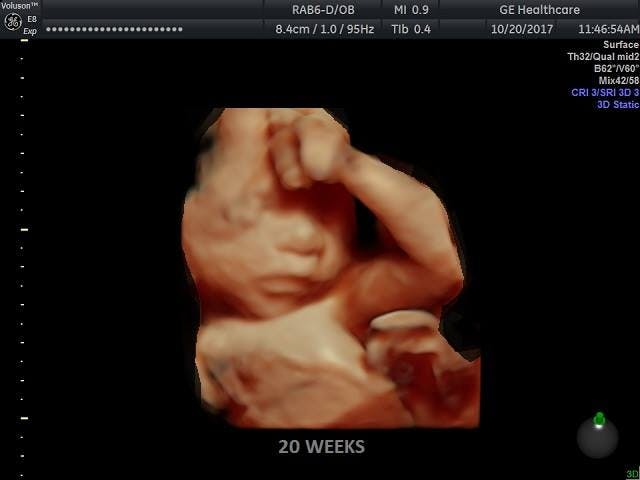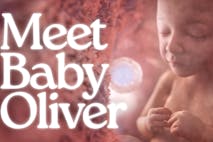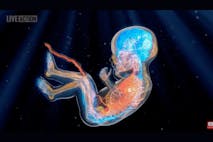
First baby surrendered in Safe Haven Baby Box in Texas
Bridget Sielicki
·
Nice try, Daily Beast, but Texas is not lying to women about abortion
The abortion industry is built on lies—lies to the general public, lies to women, lies to students, lies to the government, and lies to the media. Unfortunately, that last group is more than happy to be lied to.
At the Daily Beast, Samantha Allen dutifully recites the bogus meme that pro-lifers are the real liars, by attacking the latest draft of Texas’s “A Woman’s Right to Know” booklet, which the state mandates be given to women 24 hours before an abortion.
Predictably, her case that the booklet is “riddled with lies” and shows a clear “intent to dissuade women from choosing abortion” (the latter of which is a feature, not a bug) is the real list of falsehoods. (By the way, the copy she’s reviewing is a draft, not a finalized version currently going out to women.)
First, Allen attacks it for suggesting that babies are capable of feeling pain by 20 weeks, which she claims “directly contradicts current scientific consensus.” The American College of Obstetricians and Gynecologists even told Texas that fetal pain was “ideological rather than scientific”!

Unfortunately, the ACOG has its own track record of ideology trumping science. So does the American Medical Association, whose 2005 report Allen cites as part of the “consensus”…the very same report AMA refuses to retract despite three of its five authors having direct ties to the abortion industry and pro-abortion advocacy groups and despite being contradicted by more recent findings showing fetal pain is possible without a cortex.
Second, Allen complains that the booklet details established risks of abortion without saying that abortion is still fourteen times safer than childbirth. Maybe because it isn’t. For one thing, abortion underreporting is severely obscuring the truth; for instance, one 2011 investigation by the Chicago Tribune found 4,000 underreported abortion complications and six deaths in Illinois alone, just in one year.
In 2012, Professor Priscilla Coleman of Bowling Green State University challenged the oft-cited claim that abortion is 14 times safer than childbirth, noting that the previous study claiming abortion’s safety suffered from severe underreporting of abortion data, wrongly classified deaths due to abortion as pregnancy deaths, and failed to consider abortions past the first trimester.
Another study the next year, from West Virginia University-Charleston’s Obstetrics & Gynecology Dept.’s vice chair Dr. Byron Calhoun, also deemed the number bogus for similar reasons. Also in 2013, Coleman and the Elliot Institute’s Dr. David Reardon examined 30 years of data from women in Denmark and found that abortion at 12 weeks or earlier was linked to an 80 percent higher risk of death within a year of the procedure, and 40 percent higher within 10 years.
Third, Allen knocks the booklet for suggesting a possible link between abortion and breast cancer. But in 2009, Dr. Louise Brinton, head of the National Cancer Institute’s Environmental Epidemiology Branch, Division of Cancer Epidemiology and Genetics, co-authored a study in the peer-reviewed Cancer Epidemiology, Biomarkers and Prevention, concluding that abortion increases a woman’s risk of breast cancer by 40 percent. Further, a 2013 meta-analysis out of China, published in the peer-reviewed Cancer Causes and Control, found a single abortion raises the breast cancer risk by 44 percent, a second raises it by 76 percent, and a third by 89 percent, while a 2013 study in the Indian Journal of Community Medicine found a history of abortion multiplies a woman’s breast cancer risk six-fold. (See also here and here.)
But never mind that, because Allen has an ACOG-approved study from the National Cancer Institute that says there’s “no overall risk.” What you won’t learn from Allen, though, is that her study is from 2003. What you will learn from my colleague Robin Keahey is that the 2003 study was headed by the same Louise Brinton who came to the opposite conclusion six years later in the study I mentioned above. Gee, I wonder what motive NCI would have for relying on older, outdated information from the same researcher…
Next, Allen objects that the booklet warns that abortion can increase the risk of future infertility without stressing how rare the possibility is (or that it can be reversed)—again, all because ACOG says so (noticing a pattern here)? ACOG puts the odds of injury to the mother’s organs during a second-trimester abortion at “less than 1 in 1,000,” don’t you know.

It may indeed be rare, and perhaps Texas should reflect that (though again, we’re talking about a non-final draft). However, I wouldn’t be too confident of the rarity after hearing this expert opinion from an abortionist quoted by the pro-abortion Salon: “There are only two kinds of doctors who have never perforated a uterus: those that lie and those who don’t do abortions.”
Finally, Allen attacks the booklet for claiming, without citation, that “women have reported experiencing ‘regret,’ ‘grief,’ ‘lowered self-esteem,’ ‘sexual dysfunction,’ ‘avoidance of emotional attachment,’ and ‘substance abuse’ after an abortion.” ACOG (of course) is flat-out lying when it says such claims are “not based on scientific evidence.”
You want scientific evidence and citations? I’ve got scientific evidence and citations:
Ten times increased incidence of suicide attempts among post-abortive teenage girls (University of Minnesota: Minnesota Extension Service, 1986)
Five times increased incidence of drug and alcohol abuse (American Journal of Drug and Alcohol Abuse, 2000)
154 percent higher likelihood of suicide (Southern Medical Journal, 2002)
65 percent higher risk of long-term clinical depression (Medical Science Monitor, 2003)
Twice the likelihood of hospitalization for psychiatric illness (Canadian Medical Association Journal, 2003)
A review of 30 studies from 1995 to 2013, 29 of which affirmed negative psychological consequences to abortion (Psychiatry and Clinical Neurosciences, 2013)
To counter the evidence she pretends doesn’t exist, Allen cites the infamous ANSIRH study claiming most abortion feel relieved after abortion. As I covered a year ago, ANSIRH director Tracy Weitz is so pro-abortion she makes ACOG look impartial by comparison, and its work (including that particular study) is riddled with methodological errors.
Ideological lies about health are a big problem in America’s understanding of abortion, but the Daily Beast and the compromised “experts” it relies on are part of the problem, not the solution. The real reason for such hostile pushback to Texas’s informed-consent materials is that they threaten to reveal who women can’t trust.
Live Action News is pro-life news and commentary from a pro-life perspective.
Contact editor@liveaction.org for questions, corrections, or if you are seeking permission to reprint any Live Action News content.
Guest Articles: To submit a guest article to Live Action News, email editor@liveaction.org with an attached Word document of 800-1000 words. Please also attach any photos relevant to your submission if applicable. If your submission is accepted for publication, you will be notified within three weeks. Guest articles are not compensated (see our Open License Agreement). Thank you for your interest in Live Action News!

Bridget Sielicki
·
Human Interest
Bridget Sielicki
·
Media
Nancy Flanders
·
Media
Kelli Keane
·
Media
Cassy Cooke
·
Media
Cassy Cooke
·
Politics
Calvin Freiburger
·
Guest Column
Calvin Freiburger
·
Abortion Pill Reversal
Calvin Freiburger
·
Guest Column
Calvin Freiburger
·
Abortion Pill Reversal
Calvin Freiburger
·